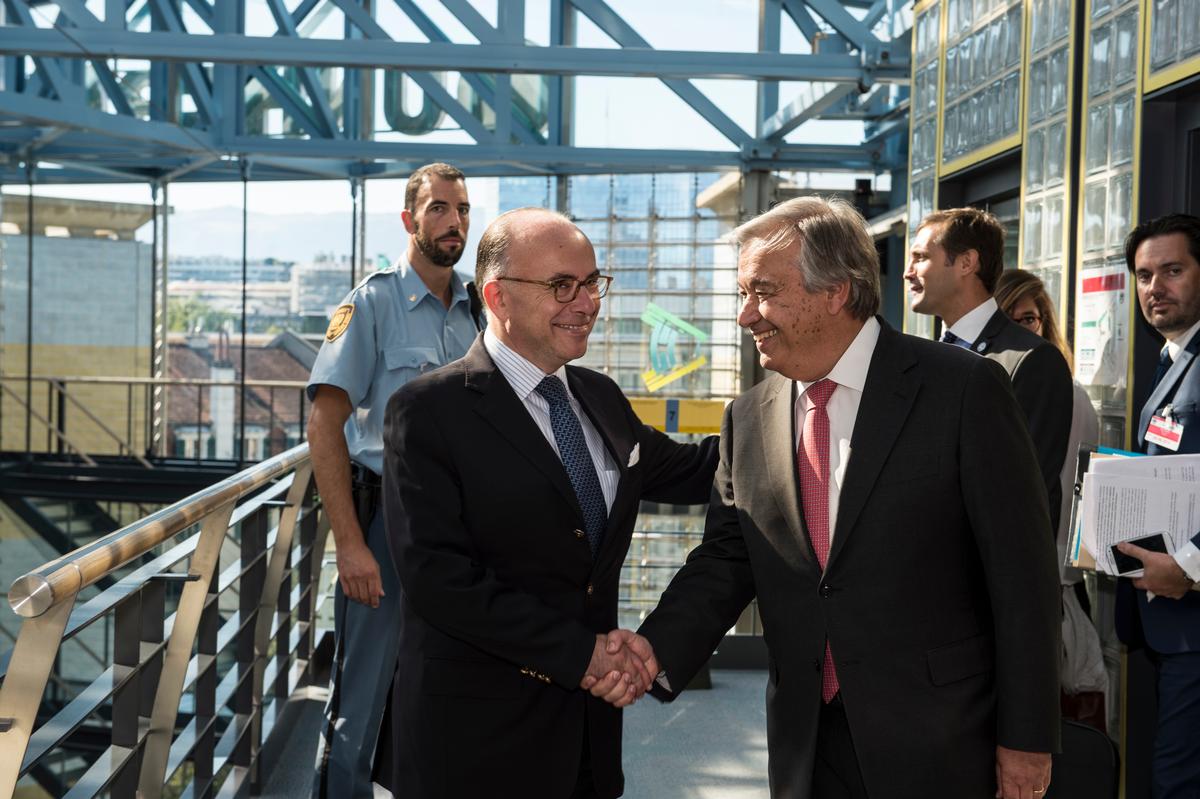Guterres ends two days of talks in Baghdad on Iraq displacement
Guterres ends two days of talks in Baghdad on Iraq displacement
Saturday, 31 March 2007
BAGHDAD - U.N. High Commissioner for Refugees António Guterres on Saturday concluded two days of talks with senior officials in Baghdad on strengthening humanitarian efforts for millions of uprooted Iraqis.
Guterres, who arrived in the Iraqi capital on Friday, met with several government leaders, including President Jalal Talabani, Vice President Tarik Al Hashemi, Prime Minister Nouri Al Maliki, Foreign Minister Hoshyar Zebari, Interior Minister Jawad Al-Bollani and Minister of Displacement and Migration Abdul-Samad Rahman Sultan. He also held extensive discussions with Ambassador Ashraf Qazi, the Special Representative of the UN Secretary-General in Iraq.
Describing the displacement of nearly 4 million people in Iraq and neighbouring countries as a humanitarian crisis, the High Commissioner announced that following consultations with Iraqi leaders UNHCR would strengthen its international presence in Baghdad and increase its activities in the country. But it was essential that the government in Baghdad lead an international effort to ease the plight of the displaced. An estimated 1.9 million people are displaced internally within Iraq, and another 2 million have sought refuge in nearby countries, primarily in Syria (1.2 million) and Jordan (750,000).
Guterres briefed the Iraqi leaders on a UNHCR-organised international conference on refugees and displaced affected by the conflict in Iraq scheduled for Geneva on April 17-18. More than 190 governments have been invited to the ministerial-level conference, which is aimed at forging an international effort to address the humanitarian needs of those uprooted by the conflict. He said Iraqi commitment and leadership will be vital to the success of the conference and the overall international effort to ease the suffering of Iraqi refugees and internally displaced.
"The clear engagement of the Iraqi government in support of their own citizens living in the neighbouring countries is a vital element not only in alleviating their plight, but as an instrument to reinforce the links of Iraqi refugees with their own country and preparing for their voluntary return when conditions allow," Guterres said. "UNHCR is ready to cooperate with the Iraqi government to facilitate the most effective forms of cooperation."
The huge number of Iraqi refugees has put an enormous strain on countries in the region, particularly Syria and Jordan. UNHCR is urging the international community to share the burden with host countries, including through support for its work as well as other humanitarian agencies operating in the region, through bilateral support to the governments and through resettlement for some of the most vulnerable refugees.
The High Commissioner also sought government help in ensuring the protection of more than 44,000 refugees, including some 15,000 Palestinians, inside Iraq. The Palestinians in particular have been the targets of ongoing violence.
UNHCR has seven offices in Iraq carrying out humanitarian programmes for refugees from elsewhere as well as tens of thousands of internally displaced Iraqis. Internal displacement caused by growing sectarian violence has worsened considerably, with an estimated 727,000 people fleeing their homes since the beginning of 2006.







